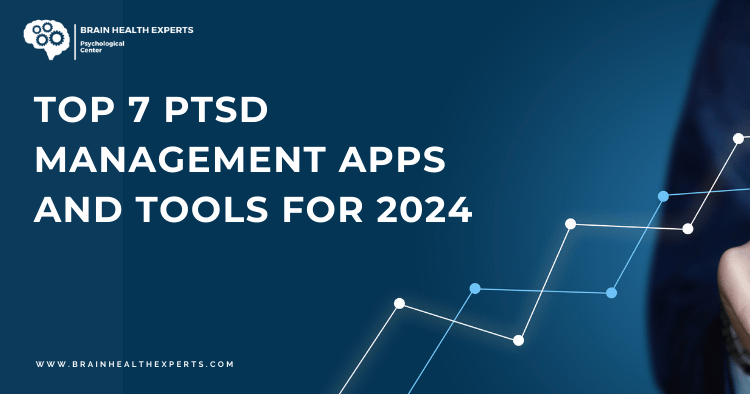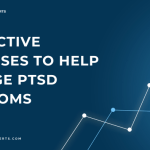Table of Contents
- Introduction
- 1. PTSD Coach
- 2. Mindfulness Coach
- 3. Sanvello
- 4. Talkspace
- 5. Calm
- 6. Worry Watch
- 7. Moodfit
- Conclusion
- FAQs
Introduction
Living with Post-Traumatic Stress Disorder (PTSD) can be incredibly challenging. Fortunately, advancements in technology have led to the development of several apps and tools designed to help manage symptoms and improve overall well-being. In this article, we’ll explore the top seven PTSD management apps and tools for 2024, providing you with trustworthy resources to support your journey toward healing. For more insights on managing mental health, consider reading about 10 Proven Stress Management Techniques for Daily Relief and 7 Effective Exercises to Reduce Stress and Boost Wellbeing.
“Technology is a powerful ally in the journey towards mental well-being. These apps can provide support, but remember to seek professional guidance when needed.”
1. PTSD Coach
Overview: PTSD Coach is a free app developed by the U.S. Department of Veterans Affairs. It offers educational resources, self-assessment tools, and skills for managing PTSD symptoms.
Features:
- Self-assessment: Helps users track their symptoms and identify triggers.
- Coping strategies: Provides breathing exercises, grounding techniques, and distraction tools.
- Resource directory: Connects users with local mental health services.
Why It’s Great: The app is user-friendly and features evidence-based techniques to help manage PTSD symptoms effectively. Its backing by a reputable organization adds credibility.
Learn More: PTSD Coach
“Evidence-based techniques are crucial for effective management of PTSD symptoms.”
2. Mindfulness Coach
Overview: Mindfulness Coach, also developed by the Veterans Affairs, is designed to help users practice mindfulness, which can be beneficial for managing PTSD.
Features:
- Guided meditations: Ranges from beginner to advanced levels.
- Progress tracking: Users can monitor their mindfulness journey.
- Educational resources: Learn about the benefits of mindfulness and how it relates to mental health.
Why It’s Great: Mindfulness is proven to reduce anxiety and promote emotional regulation, making this app a valuable tool for PTSD management. For more mindfulness practices, check out 10 Mindfulness Techniques to Reduce Stress Effectively.
Learn More: Mindfulness Coach
“Mindfulness can serve as a powerful tool in cultivating resilience and emotional balance.”
3. Sanvello
Overview: Sanvello is a comprehensive mental health app that offers tools for managing anxiety, depression, and PTSD.
Features:
- Mood tracking: Users can log their feelings and identify patterns over time.
- Cognitive-behavioral therapy (CBT) techniques: Provides users with strategies to challenge negative thoughts.
- Community support: Offers a platform to connect with others facing similar challenges.
Why It’s Great: Sanvello’s holistic approach, combining self-help tools and community support, makes it an excellent choice for anyone dealing with PTSD.
Learn More: Sanvello
“Connecting with others who share similar experiences can greatly enhance the healing process.”
4. Talkspace
Overview: Talkspace is an online therapy platform that connects users with licensed therapists via text, audio, or video messaging.
Features:
- Flexible therapy options: Choose from various therapy plans that fit your needs.
- Licensed professionals: Access to therapists who specialize in PTSD and trauma.
- Confidentiality: Ensures privacy and discretion in therapy sessions.
Why It’s Great: For those who prefer professional guidance, Talkspace offers a convenient and flexible way to access therapy without the need for in-person visits.
Learn More: Talkspace
“Sometimes, the best support comes from a trained professional who understands your unique challenges.”
5. Calm
Overview: Calm is a meditation and relaxation app that is not specifically designed for PTSD but offers valuable tools for stress reduction and mental clarity.
Features:
- Meditation sessions: A variety of guided meditations tailored to different needs.
- Sleep stories: Helps users relax and fall asleep more easily.
- Breathing exercises: Simple techniques to reduce anxiety in the moment.
Why It’s Great: Calm’s focus on relaxation and mindfulness can be particularly helpful for individuals seeking to manage stress related to PTSD. Check out 10 Effective Techniques to Boost Your Sleep Hygiene for better sleep quality, which is crucial for mental health.
Learn More: Calm
“Relaxation techniques can play a vital role in your overall mental health management.”
6. Worry Watch
Overview: Worry Watch is an app that helps users track their worries and anxiety over time, providing insights into patterns and triggers.
Features:
- Worry logging: Users can record their worries and the outcomes, helping to reduce anxiety.
- Mood tracking: Offers insights into how worries affect emotional well-being.
- Reflective exercises: Encourages users to challenge their worries and develop coping strategies.
Why It’s Great: By helping users understand their worries, Worry Watch empowers individuals to take control of their anxiety, making it a valuable companion for PTSD management.
Learn More: Worry Watch
“Understanding your worries can be the first step towards overcoming them.”
7. Moodfit
Overview: Moodfit is a mental health fitness app that offers a range of tools to help users improve their mood and deal with emotional challenges.
Features:
- Mood tracking: Helps users visualize their emotional patterns.
- Cognitive-behavioral tools: Offers exercises and activities to challenge negative thoughts.
- Goal setting: Helps users create and track mental health goals.
Why It’s Great: Moodfit’s comprehensive approach makes it a versatile tool for anyone looking to enhance their mental well-being.
Learn More: Moodfit
“Tracking your mood can provide valuable insights into your emotional health and help inform your coping strategies.”
Conclusion
Managing PTSD can be a complex journey, but technology offers a range of apps and tools to support individuals in their healing process. Whether you prefer self-guided resources, professional therapy, or mindfulness practices, there’s an app in this list that can cater to your needs. Remember, while these tools can be helpful, they should complement, not replace, professional medical advice and treatment. For further insights on positive thinking and its impact on mental health, consider exploring 10 Ways Positive Thinking Boosts Emotional Well-Being.
“Embrace technology as a partner in your mental health journey, but always prioritize professional guidance.”
FAQs
1. Are PTSD apps a replacement for therapy?
No, while these apps can provide valuable support and coping strategies, they should not replace professional therapy. They are best used as complementary tools.
2. Are these apps suitable for everyone?
Most of these apps are designed for adults. However, it’s essential to consult with a healthcare provider to ensure they are appropriate for your specific situation.
3. Can I use these apps for free?
Many of the apps listed offer free versions with basic features. Some may have premium options for more advanced functionalities.
4. How effective are mental health apps?
Research shows that mental health apps can be beneficial in providing support and resources for managing symptoms. However, individual results may vary.
5. Where can I find more information on PTSD?
For more detailed information on PTSD, including symptoms and treatment options, visit the National Center for PTSD at ptsd.va.gov.
“By exploring these resources and making use of technology, you can take proactive steps toward managing PTSD and enhancing your overall mental well-being.”





